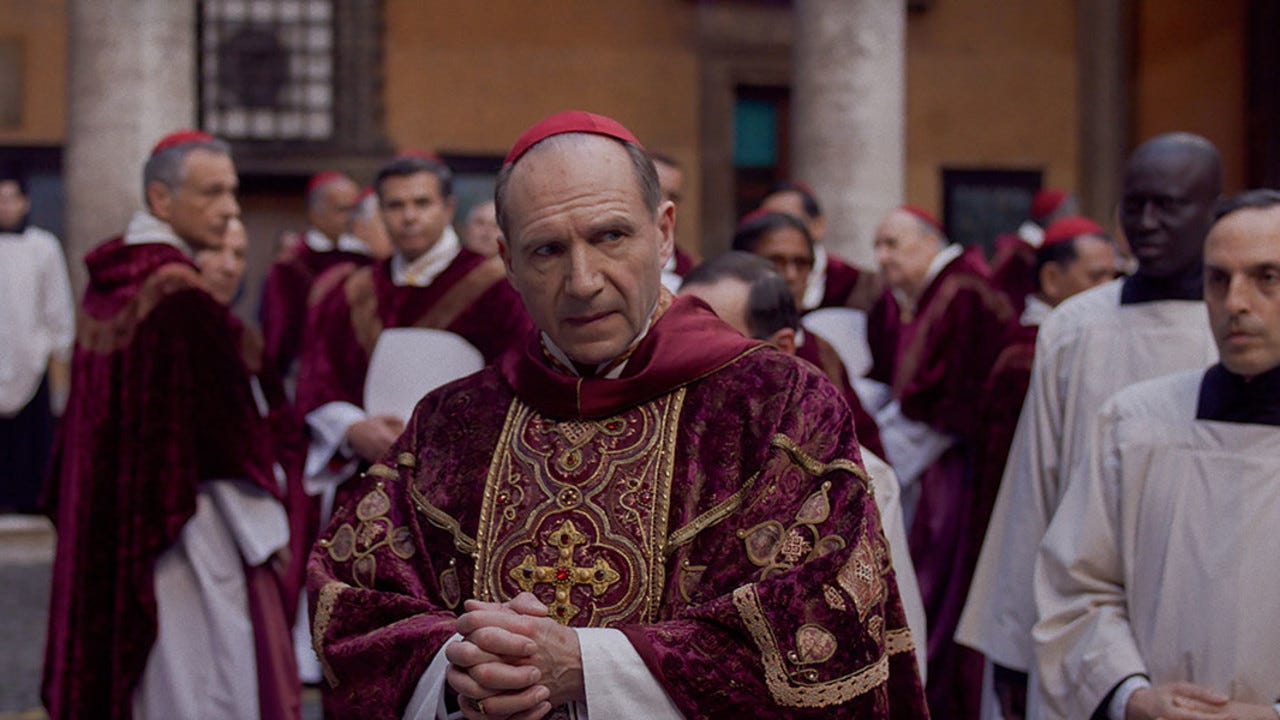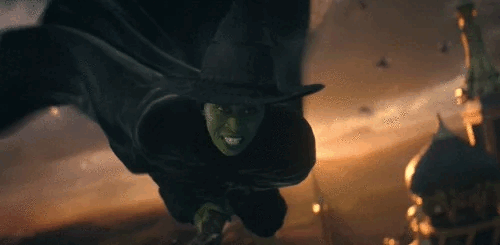Oscar Seasoning: Why Are the BAFTAs So Endlessly Disappointing?
The British version of the Oscars is so sad that it isn’t actually the Oscars.
The nominations for the 79th BAFTA Awards are here and they continue to disappoint me. I miss when this organisation didn’t make me feel sad and kind of annoyed. Leading the pack is Conclave with 12 nominations, including ones for Best Director, Best Film, and Best Actor for Ralph Fiennes. Emilia Pérez has 11 nominations while The Brutalist has nine.
There are some fun nominations in there, like Hugh Grant getting in for Heretic, but overall, this is so effing dull. Not only that but it’s boring in the ways we knew it would be: tediously trying to grasp the tail of the Oscars. So, we get Jamie Lee Curtis for a fun but nothing performance in The Last Showgirl but nothing for Fernanda Torres or, you know, Pamela Anderson? Denzel Washington missed out on Best Supporting Actor for Gladiator II, which would have been his first ever BAFTA nom. First ever? For Denzel?! Jesus, BAFTA. How do you f*ck that up?!
(Image via Roadside Attractions.)
They couldn’t even be trusted to give Daniel Craig a nomination for Queer?! The focus on British cinema feels so much like an afterthought with this organization nowadays. There’s a hollowness to it too. We know that Saoirse Ronan won’t get Best Actress for The Outrun from them because they care more about the Oscars narrative. That should be the kind of film they prioritise but now it’s an afterthought.
Once upon a time, the BAFTAs happened after the Oscars, and they were a combined ceremony for both film and television. You saw a far stronger focus on British talent during this era, which meant the nominations were often weirder and less safe than what we expect from the Oscars. Remember, the BAFTAs once gave Best Supporting Actor to Alan Rickman for Robin Hood: Prince of Thieves. They nominated Eddie Murphy for Shrek in that same category! You could rely on BAFTA to keep things interesting.
Then they decided that they wanted to be part of the Oscar narrative so they moved their ceremony to before the Academy Awards. Now, it’s considered a precursor to the big one, and as such the nominations have gotten less interesting. Not coincidentally, they also got far less diverse, and they weren’t exactly a bastion of inclusivity to begin with. If the Oscars were so white, somehow the BAFTAs could make it worse. They weren’t even British-focused anymore. It was all Americans (or the British stuff that Hollywood cared about), and almost exclusively white. It got so bad that in 2020, when Joaquin Phoenix won Best Actor for Joker, he spent his entire speech reading the BAFTAs to filth for their lack of diversity.
(Image via Focus.)
So, BAFTA got embarrassed into changing their system. They revamped the nomination process, moving to a jury system with a small panel of experts in the field putting together the shortlists. This led to some fascinating nominations that were as un-Oscary as you could get. In 2021, we got nominations like Jasmila Žbanić as Best Director for Quo Vadis, Aida?, Bukky Bakray and Radha Blank in Best Actress, and Clark Peters in Da 5 Bloods for Best Supporting Actor. But the overall winners were all of the Oscar winners. Sure, okay, there was momentum for the frontrunners of the entire season. I can see the logic. The same thing happened the following year, as fascinating and worthy nominees were shunted to the side in favour of replicating the Oscars beat for beat. The only exception was Best Actress, where Joanna Scanlan deservedly won for her stunning performance in After Love, and that only happened because that year's Oscar winner, Jessica Chastain, wasn't nominated.
There had been 120 changes made to the voting process for the 2023 Awards, notably expanding the longlist and making jurors watch a certain percentage of the films on it. They worked overtime to try and change the narrative, and what they ended up with was a set of winners even whiter than the Oscars. I'm still salty that they had nominees like Park Chan-wook and still went whiter than white.
So, this is the situation: the BAFTAs eagerly want to be seen as an important part of the Oscar race, but they’re also struggling to differentiate themselves as both a bastion of British culture and a progressive organization that isn’t dominated by posh old white dudes, even though it is. That means that, predictably, this year’s nominations were pretty much exactly what we expected, and that sucks (and not just because I really hated Emilia Perez.) How can they truly shift the needle on this? Honestly? I think the only way they can guarantee anything tangible is to shunt the BAFTAs back to a post-Oscars ceremony. They’ll never do that, though. They want the glitz and schmoozing energy that comes with a bunch of Hollywood power players cozying up to them because it’s seen as a key part of campaigning for the Oscar. How depressing.
This is really the quandary of the entire awards season. Everyone wants to be right. They want to be the ones who called the winners months in advance. It’s an entire industry, both within the film world and in my field of pop culture hot-takes merchants. There’s something satisfying about a well-built narrative, which is the entire point of the Oscars, far more so than the merit of the eventual winners. Sometimes there’s a crossover between the person who is the deserving winner and those whose story is the most appealing, but that’s rare. We spend months as film lovers celebrating the best of the medium, the most daring and intriguing works, only for the entire season to be boiled down to its most middlebrow offerings. You’d think I’d be used to this by now but alas, it’s the hope that kills you.







Pamela Anderson was robbed.